Making the big transition
Updated: 2014-09-01 06:44
By Andrew Moody and Hu Haiyan(China Daily)
|
|||||||||
Whether Wuxi is an example of where China is heading by 2020 is a matter of debate.
|
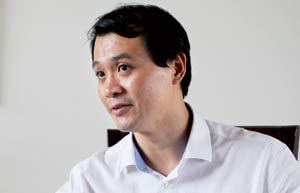 Zhu Ning, deputy director and professor of finance at the Shanghai Advanced Institute of Finance.CHINA DAILY
|
He says there is a nouveau riche attitude in places such as Wuxi that is largely absent in more developed countries in the West.
"I think Chinese people who travel to the US and Europe have this strong shock when they don't see this conspicuous consumption of flashy cars and expensive iPads. I think this is because what you have in the West is a more mature income distribution that prevents this."
|
 Ruchir Sharma, head of emerging markets and global macro at Morgan Stanley Investment Management.CHINA DAILY
|
"You always get inequality between regions. We all know that development tends to be much faster in coastal areas. That has been the experience of all economic development and it was true of the United States as well."
The much bigger question is whether China will succeed in joining the high-income club and meet the target likely to be set in the 13th Five-Year Plan (2016-20).
Many emerging nations have fallen into the so-called "middle income trap" from where they have found it impossible to achieve full development.
This has been true of many Latin American countries, which suffered a major debt crisis in the 1980s and had to be bailed out by the International Monetary Fund.
Brazil, host of this year's soccer World Cup and a large emerging economy, has never succeeded in breaking out of the trap, with many of its citizens living in abject poverty.
Russia and South Africa are other BRICS economies that are also not in the top league.
|
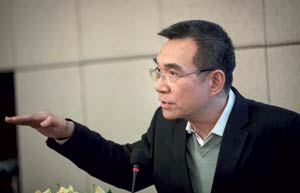 Justin Yifu Lin, former chief economist at the World Bank and professor at the National School of Development at Peking University.
CHINA DAILY |
He believes that its economy has huge scope for fast growth over the next 15 years without even changing its existing investment-led model, which others argue might itself cause a bust.
His view is based on the fact that China reached a per capita income of 21 percent of that of the United States in 2008. Japan achieved that level in 1951, Singapore in 1967 and South Korea in 1977 and all grew at above 7.5 percent or more annually for 20 years thereafter.
"What drives income levels is an improvement in labor force productivity. This requires continuous technology innovation and industrial upgrading," he says.
China, according to Lin, has what he terms a late development advantage in that it does not need to develop its own new technology but can just copy that which exists elsewhere.
"China has realized this advantage in its first 30 years of development after reform and opening-up and there is no reason why it shouldn't continue to do so. It can innovate and upgrade its industry (and boost incomes) by imitating the technology of developed nations. It involves much lower costs and risks than developing its own technology."

 Peace Mission - 2014 military drill ends in China's Inner Mongolia
Peace Mission - 2014 military drill ends in China's Inner Mongolia
 First steps on a journey of discovery
First steps on a journey of discovery
 Garbage dump turns water into poison
Garbage dump turns water into poison
 Vintage cars exhibition opens in Jinan
Vintage cars exhibition opens in Jinan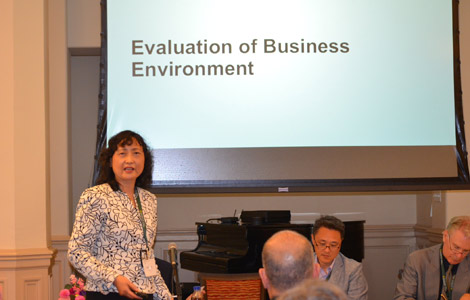
 Discussion on Chinese FDI
Discussion on Chinese FDI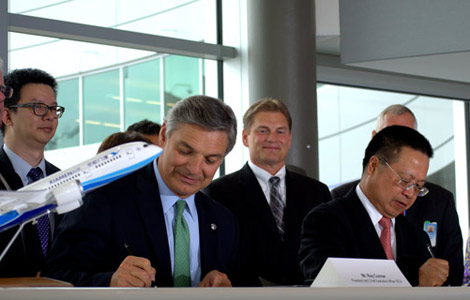
 Boeing, Xiamen Airlines celebrate 787 Dreamliner delivery
Boeing, Xiamen Airlines celebrate 787 Dreamliner delivery
 US photographer captures amazing starry night
US photographer captures amazing starry night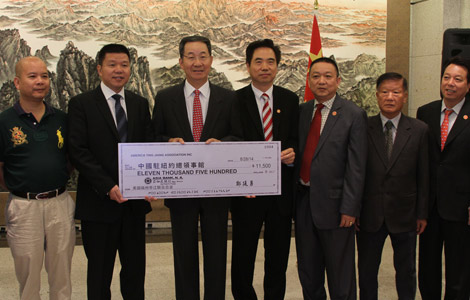
 More earthquake relief rolls in
More earthquake relief rolls in
Most Viewed
Editor's Picks

|

|

|

|

|

|
Today's Top News
Chinese American to run NYC public schools' fund
US launches fresh air strikes on IS rebels
NPC decision a landmark in HK democratic development
Chui Sai On elected Macao chief executive-designate
Exhibition on China-US WWII collaboration unveiled
Google building delivery drones
US, China plan followup to Sunnylands summit
US urged to stop recon
US Weekly

|

|








